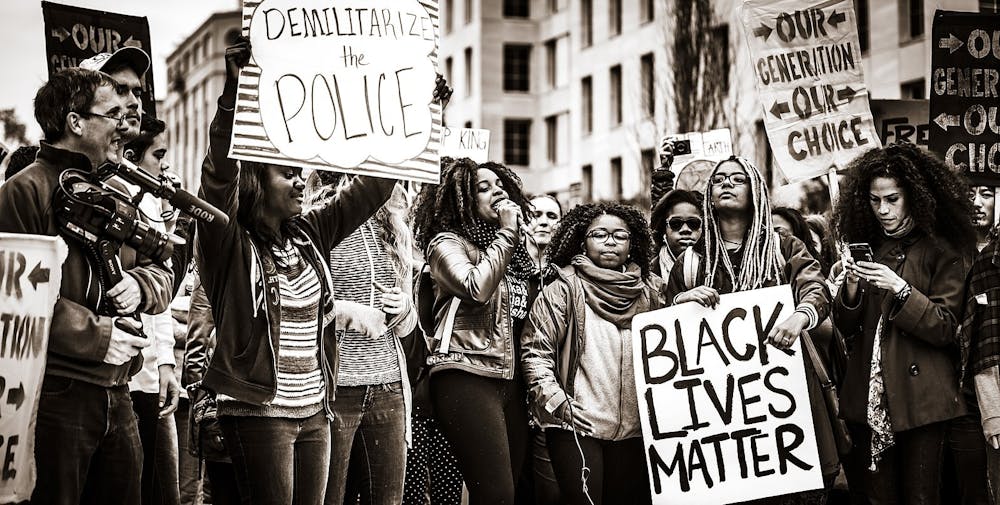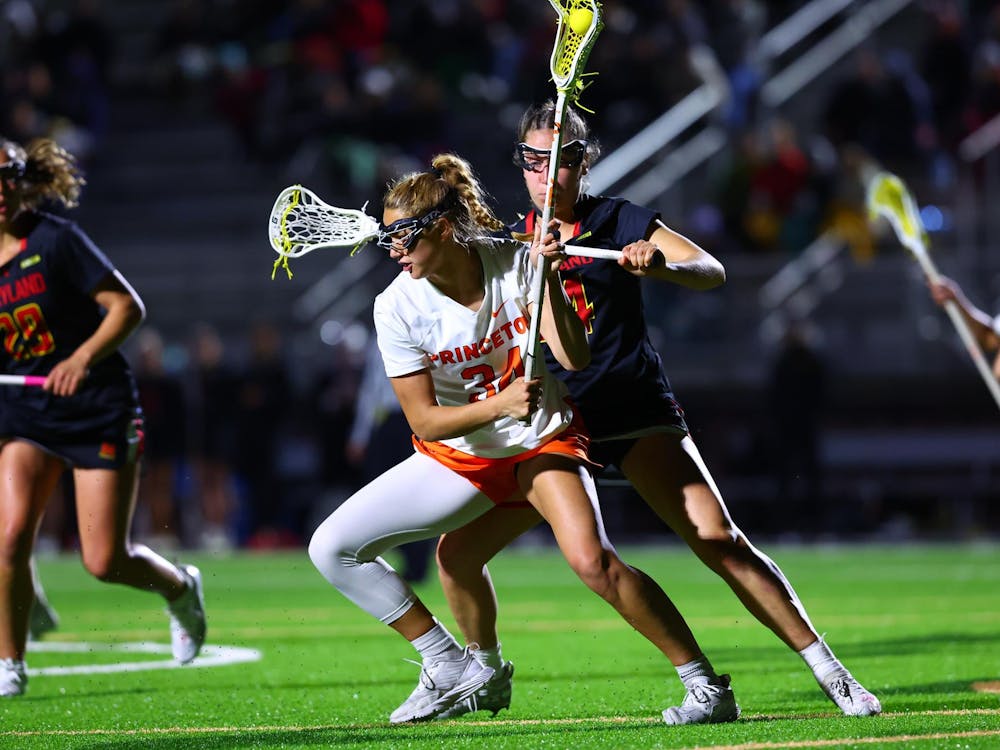Unbeknownst to me last Friday, as I went to take the train back from New York, I almost crossed paths with nearly 1,000 people protesting against recent instances of police brutality related to fare evasion on Metropolitan Transportation Authority (MTA) subway lines across the city. Framed by conservative news outlets as “anti-cop,” individuals within the protests led with chants of “No NYPD on the MTA” and “How do you spell racist? N-Y-P-D” as they marched near the Barclays Center arena and jumped turnstiles en-mass.
The important distinction to be made here is this: rather than targeting individual cops, the protestors spoke out against the larger system, which allows for individual instances of police brutality against marginalized groups.
These protests took place after a fare increase on subway systems this past summer, along with the creation of a team of 500 cops, known as the Fare Enforcement Task Force, to patrol the 50 MTA stops where fare evasion occurs with the highest frequency. The MTA’s most recent Subway Fare Evasion Arrest Report, released for the second quarter of 2019, identified 88.7 percent of those arrested for fare evasion as people of color. Of that group, 68.4 percent were identified as black.
It seems that whenever protests like these come up, the backlash against the protesters never disagrees with the basic facts of the matter. Dissenters rarely say, “Hey, you know what? It’s totally fair that we have a public transit system only a few can afford. It’s totally fair that raising prices in this specific manner and policing these specific boroughs disproportionately affects only a certain portion of the population. You guys totally have nothing to be angry about.”
Instead, much like the sentiments expressed by Eve Hyman, a New York commuter, people are more likely to disagree because not all cops are bad, and protests can inadvertently appear vitriolic against good individuals. Even to the protesters’ critics, it’s not that people who are protesting have the wrong idea. Rather, protesters are discredited on the basis that there are some individual police officers within the larger system who are educated and attempt to act within a less objectionable moral framework.
What these people get wrong is the purpose of these kinds of protests, and the purpose of “anti-cop” slogans within them. Systems can be racist without every individual within the system being racist. Saying, “Hey, the police aren’t racist. Some cops are actually really great people,” is analogous to saying, “I have gay friends, so I’m not homophobic,” or “Christianity as a whole isn’t problematic, because I have friends who are Christians who aren’t problematic.” This is a basic logical fallacy.
The police system’s interactions with racial and socioeconomic dynamics is not problematic because all individual officers are problematic. The system is wrong because it allows for the possibility that some officers act in corrupt ways.
Standing with the Brooklyn MTA protests does not mean standing against individual cops or being “anti-cop.” It means being opposed to systems that allow for individual corruption, being opposed to systems that allow for the propagation of violence, and being opposed to systems that allow the dissemination of racism.
Anna McGee is a sophomore from Paducah, Ky. She can be reached at amcgee@princeton.edu.










